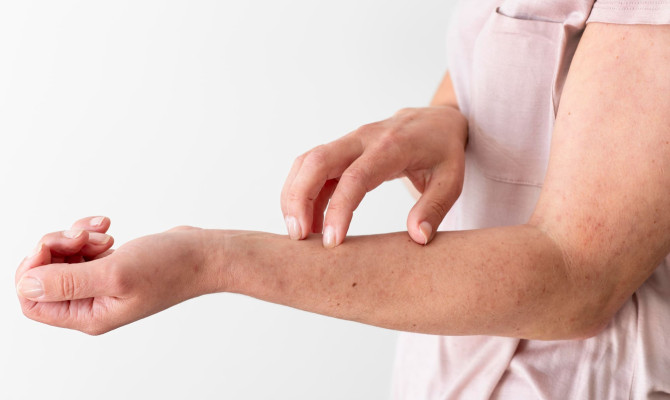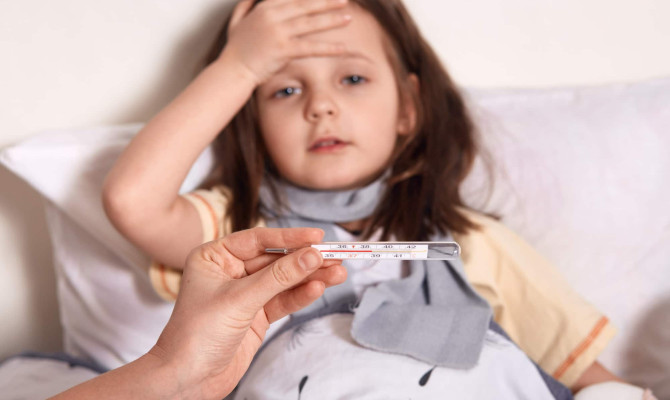What are Mouth lesions: Types, Symptoms, and Treatment

- Mouth Lesions
- 22 Aug 2023
Overview
What are Mouth lesions?
Mouth lesions are painful swellings in the oral soft tissues such as the lip, tongue, gum, cheeks, and floor or roof of the mouth. There are many causes of mouth lesions, including trauma, allergy, and infection.
Some mouth lesions last only one or two weeks and might heal independently. Most mouth lesions are harmless, while some might be contagious and require treatment. Mouth lesions sometimes indicate severe infection or may be due to a more serious reason, such as oral cancer.

Facts of mouth lesions
- Mouth lesions are common and can affect individuals of all age groups at any point in life.
- The most common mouth lesions are cold sores and canker sores
- In the United States, around 27% of the population experience mouth lesions due to cold sores
- In 2016, cold sores occurred in around 66% of the world’s population under 50 1Overview| Researched based study from Sciencedirect.com .
Types
Types of Mouth lesions
The common types of mouth lesions are as follows:
Cold sores
- Cold sores are fluid-filled blisters that appear near the lips and mouth.
- They appear red, and the affected area is tender and sensitive before the sore appears.
- Cold sores happen due to herpes simplex virus (HSV- 1).
- Cold sores are infectious and can transmit from one person to another through contact with cold-sore-infected persons.
Canker sores (aphthous stomatitis)
- Canker sores are tiny oval-shaped ulcers in the mouth caused due to biting inside the cheek, sensitivity, and allergies.
- They appear gray, white, yellow, or red, with irritation surrounding the blister.
- They resolve on their own within a few weeks
- Cancer sores are non-infectious
Gingivostomatitis
- Gingivostomatitis is tender sores inside the cheeks and gums, usually caused by not brushing teeth regularly. It is more common in young children.
- They appear yellow or gray on the outside with a red central portion.
- Gingivostomatitis is caused by viruses such as coxsackievirus, herpes simplex virus (HSV-1), and bacteria such as streptococcus.
Infectious mononucleosis
- Infectious mononucleosis is a communicable disease that occurs as a rash inside the mouth or skin and is common in adolescents and young children.
- The spots might look purple or pink.
- The Epstein-Barr virus causes Infectious mononucleosis.
- Symptoms such as fever, headache, body pain, and sore throat may last four weeks or longer.
Hand, foot, and mouth disease
- Hand, foot, and mouth diseases are agonizing pus-filled red sores that appear in the mouth, tongue, gums, palm of the hands, and foot.
- It is infectious and usually not severe and is frequent in children under the age of 5 years.
- It is caused by enterovirus such as coxsackievirus, and the infection usually resolves within ten days.
Oral thrush
- Oral thrush is the creamy white swelling that occurs on the inner cheeks, tongue, gums, and tonsils and is usually common in children and infants.
- It is caused by candida yeast that usually lives in the body without causing infection.
- The condition resolves with antifungal medication within two weeks.
Leukoplakia
- Leukoplakia is the development of thick white patches in the mouth lining and tongue. It is common for tobacco-chewing people.
- Leukoplakia can be non-risky and may resolve independently, but sometimes it may develop into oral cancer.
Oral lichen planus
- It is a chronic disease that affects the mucous membrane of the cheeks, lips, gums, and tongue.
- It produces bright red ulcers or white patches of tissue that resemble spiderwebs. Open ulcers are painful and might bleed.
- It is non-infectious but cannot be treated.
- The symptoms are managed with mild toothpaste and corticosteroid medication.
Mouth cancer
- It is the development of abnormal cell growth in the mouth area, such as lips, cheeks, gums, teeth, tongue, and floor and roof of the mouth.
- It develops white or red patches inside the mouth or lips that do not heal 2Types| Researched based study from Nlm.nih.gov
Symptoms
Symptoms of Mouth lesions
The sores might or might not develop into blisters and may have the following symptoms:
- Pain while eating or drinking
- Burning sensation around the sore
- Difficulty swallowing
- Difficulty talking
- Bleeding
- Ulceration 3Symptoms| Researched based study from Nlm.nih.gov
Symptoms of mouth lesions needing urgent medical attention
- Sores that are bigger than half an inch in diameter
- Sores that get worse with time
- Sores developed after taking medication
- White patches on the sores
- Frequent mouth sore outbreaks
- Large and very painful
- Skin rash
- Joint pain
- Fever
- Diarrhea
- Infection11Symptoms| Researched based study from Nlm.nih.gov
Causes
Causes of Mouth lesions
Several reasons can lead to mouth lesions. Some of them are as follows:
Common causes
- Bite in the cheek, tongue, or lip
- Irritation from sharp objects such as braces and dentures (artificial teeth)
- Mouth burn due to eating or drinking too hot food or beverages
- Harsh teeth brushing
- Chewing tobacco
- Smoking cigarette
- Herpes simplex virus infection
- Folate deficiency anemia
- Allergy to food or medication
Less common causes
- Over-the-counter medication viz; antibiotics
- Chemotherapy( cancer medication)
- Autoimmune disorders
- Bleeding disorders
- Digestive disorder
- Bacterial, viral, or fungal infection
- HIV(human immunodeficiency virus infection) infection
Severe causes
- Mouth cancer
- Celiac disease
- Pemphigus vulgaris (skin disorder) 4Causes| Researched based study from Nlm.nih.gov
Deficiencies that cause mouth lesions
The following deficiencies can cause mouth lesions:
- Iron
- Vitamin B3
- Vitamin B12
- Vitamin C
- Folic acid
- Zinc 5Causes| Researched based study from Nlm.nih.gov
Diagnosis
Diagnosis of Mouth lesions
The doctor will visually examine the mouth, lips, and tongue for recurrent or unexplained sores. Then he might enquire about the duration and the medical and family history.
Following, he might order the following test:
Swabs test
- It is a test where the mouth swabs are cultured in the laboratory for bacterial or fungal pathogens.
- It is done to confirm an infection
Complete blood count
- It is a blood test to determine the levels of RBC (red blood cells), WBC (white blood cells), and platelets in the blood.
- It is done to check the underlying health condition such as anemia and infection.
Biopsy
- It is a procedure to remove a small tissue sample from the affected body part for visual examination under a microscope.
- It is done to rule out the presence of cancer and other health issues 6Diagnosis| Researched based study from Nlm.nih.gov
Treatment
Treatment of Mouth lesions
Medications
Pain relieving medication
- Acetaminophen
- Ibuprofen
- Diclofenac
Topical Steroids
- Triamcinolone Acetonide gel
- Triamcinolone gel
- Fluocinolone gel
- Betamethasone mouthwash
Topical anesthetic (to numb the pain)
- Lidocaine
- Benzocaine
Anti-inflammatory drug
- Prednisone (corticosteroid)
- Choline salicylate
- Benzylamine hydrochloride
Antibiotics
- Doxycycline
- Amoxicillin
- Cefoxitin
Chemotherapy (in case of mouth cancer)
Chemotherapy is a drug that kills cancer cells. Some of them are as follows:
- Cisplatin
- Fluorouracil
Oral cancer surgery (in case of mouth cancer)
- It is the surgery to remove the cancer cells from the affected part of the mouth 7Treatment| Researched based study from Nlm.nih.gov
Home remedies for mouth lesions
- Over-the-counter pain medication such as acetaminophen
- Applying over-the-counter toothpaste and mouthwashes to reduce the pain
- Avoiding spicy, salty, and high-sugar foods
- Gargling with salt water
- Eating cold foods such as ice pops, sherbet (frozen dessert)
- Applying baking soda and water paste on the sores
- Using a solution of hydrogen peroxide on the sores
- Avoiding squeezing the sores 8Home remedies| Researched based study from Nlm.nih.gov
Prevention
Prevention of Mouth lesions
One cannot prevent mouth sores completely.
However, some measures to adopt to reduce the risk of mouth lesions are as follows:
- Avoiding hot food and beverages
- Chewing carefully and slowly
- Practicing correct oral hygiene
- Using a soft toothbrush for brushing
- Visiting the dentist regularly for check-ups
- Speaking to the dentist if the dental device is causing discomfort
- Practicing meditation regularly to reduce stress
- Eating a healthy, well-balanced diet
- Drinking plenty and staying hydrated
- Avoiding tobacco products
- Avoiding alcoholic drink
- Using lip balm with SPF (sun protection formula) when outside 9Prevention| Researched based study from Nlm.nih.gov
Diet
Foods to eat during Mouth lesions
- Soft foods that is easy to chew
- Soups and stews
- Oatmeal in milk
- Cold cereals
- Mashed sweet potatoes
- Custard
- Smoothies
- Yogurt 10Diet| Researched based study from Nlm.nih.gov
Takeaway
Key Takeaways
- Mouth lesions are painful irritable lesions in the mouth that can sometimes be embarrassing.
- Some mouth lesions heal with time, while others need treatment and care
- A person with frequent painful sores must consult with a healthcare professional to get the correct treatment without delay and to rule out serious health concerns.
Any feedback on this article?
 This Articles content was accurate
This Articles content was accurate Very Informative Article
Very Informative Article I have a question or a comment
I have a question or a comment
 This article contains inaccurate content
This article contains inaccurate content This article was not helpful
This article was not helpful I have a question or a comment
I have a question or a comment
We appreciate your helpful feedback!
Checkout our social pages
References
-
Science Direct
Mouth Lesion | Overview
-
National Library of Medicine
Overview of common oral lesions | Types
-
National Library of Medicine
Oral Ulcers Presentation in Systemic Diseases: An Update | Symptoms
-
National Library of Medicine
Overview of common oral lesions | Causes
-
National Library of Medicine
Malnutrition and its Oral Outcome – A Review | Deficiency
-
National Library of Medicine
Diagnostic Features of Common Oral Ulcerative Lesions: An Updated Decision Tree | Diagnosis
-
National Library of Medicine
The Treatment of Chronic Recurrent Oral Aphthous Ulcers | Treatment
-
National Library of Medicine
Prevention and the treatment of oral mucositis: the efficacy of sodium bicarbonate vs other agents: a systematic review | Treatment
-
National Library of Medicine
Prevention and Treatment of White Spot Lesions in Orthodontic Patients | Prevention
-
National Library of Medicine
Mouth sores – What can you do yourself? | Diet
-
National Library of Medicine
Oral Mucositis | Symptoms






































